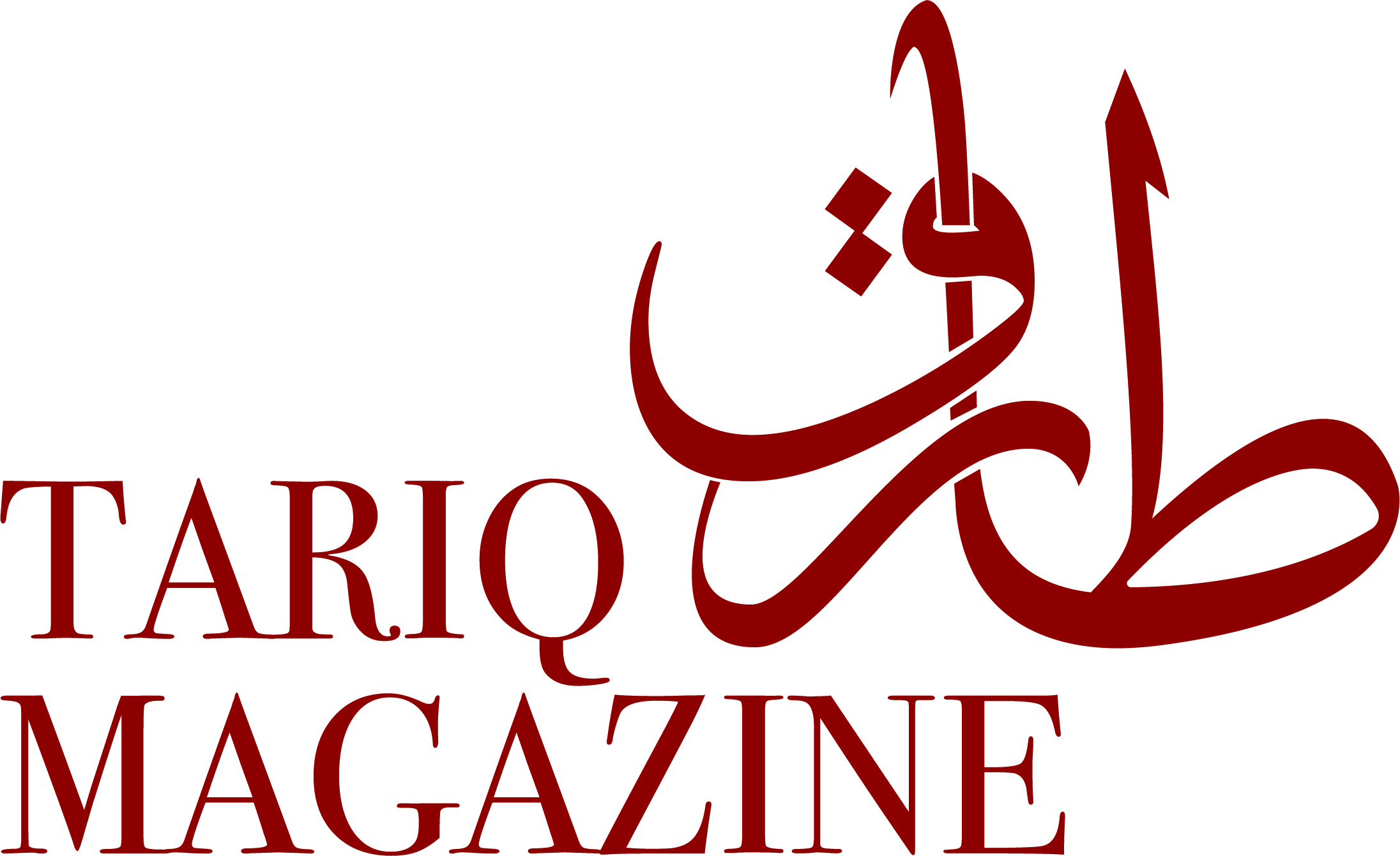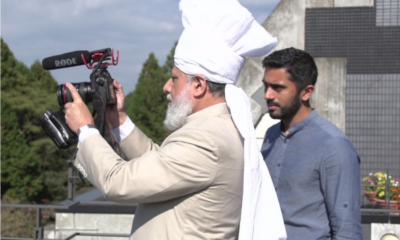Opinion
The Right To Offend: Answering A Misconception

According to Amnesty International, freedom of speech is defined as “the right to seek, receive and impart information and ideas of all kinds, by any means.”
This is a fundamental human right which encourages transparency amongst people by creating a safe environment for discussion. By doing this, it plays an essential role in helping the wider society progress. However, freedom of speech becomes a hot topic for debate when some individuals take advantage of this right and, intentionally or not, begin to offend those around them through their words and actions.
A recent example of where the use of free speech became quite controversial is when a teacher in France showed his class cartoons of the Holy Prophet Muhammadsa. Unfortunately, and in stark contrast to Islamic teachings, an individual responded to this by cold-bloodedly murdering the teacher. Such a heinous act can never be justified under any circumstances.
Questions are undoubtedly raised in such situations, with one of the most important ones being: what is the correct way to respond to people who use free speech to offend others?
As is the case when looking for answers to many difficult questions, we as Muslims can refer to the example of the Messenger of Allahsa. The Holy Prophetsa stated:
“The height of excellence is that you should strengthen the ties of relationship with the one who severs them, and be generous to the one who is miserly to you, and be forgiving to the one who abuses you.” (Musnad Ahmad)
From this hadith it is clear that if we come across a person who abuses their right to free speech and hurts the sentiments of others, we must not retaliate. Rather than escalating matters, the Holy Prophetsa taught us instead, to treat that person with kindness, respect and forgiveness. This would make it easier to resolve any differences and allow both parties to walk away with a better understanding of each other’s views.
From this we learn that the murder of the teacher in France was not at all in line with the teachings of the Holy Prophetsa.
Despite this, when such atrocities occur, the religion of Islam is often placed under scrutiny and is criticised due to the acts of a minority of Muslims. If one looks to Islam’s primary source of guidance, the Holy Qur’an, they will find that Islam advocates nothing against the meaning of its very name – peace. However, some may point out the offence that Islam causes towards those who worship idols. The Holy Qur’an states:
“Surely, you and that which you worship beside Allah are the fuel of Hell. To it shall you all come.” [21:99]
Some may take these words as an indication and advance the objection that Islam does indeed attack the sentiments of others, but it is essential to understand the context behind this verse to realise that this is in fact not the case.
The issue of speaking against the idols in the time of the Holy Prophetsa related to a specific occurrence: the idolaters had overtaken the Kaaba and would subjugate the poor and weak into inhumane rituals, in essence what was supposed to be a universal house of religious practice had been monopolised by the chiefs of Mecca. To understand the significance of this, The Kaaba had been the first House of God established under the command of God Himself during the time of Prophet Adamas, the lost foundations from the time were revived by Prophet Abrahamas and Prophet Ismaelas. The Kaaba was an incredibly sacred site that symbolised the most fundamental beliefs of not just Muslims, but all Abrahamic faiths. During the time of the Holy Prophet Muhammadsa, the Kaaba was filled with idols contradicting with the core belief of all Abrahamic faiths – the oneness of God. Of course, alongside this, the idols symbolised the worst of humanity which is proved through the practice of the Arabs at the time. As a result, it became necessary for the Holy Prophetsa to make it clear to the idolaters that their idols had no place in the House of Allah.
It should be noted, however, that the overarching principle has always been one that the verse of the Holy Qur’an speaks about:
“And revile not those whom they call upon beside Allah, lest they, out of spite, revile Allah in their ignorance. Thus, unto every people have We caused their doing to seem fair. Then unto their Lord is their return; and He will inform them of what they used to do.” [6:109]
Thus, let us end on the words of Hazrat Khalifatul-Masih Vaba who has provided a perfect summary of Islam’s stance on freedom of speech:
“People must realise that words can have far-reaching consequences and so rather than speaking of a ‘clash of civilisations’ or needlessly ratcheting up tensions between different communities, people should refrain from attacking the religious teachings of one another… Let us all, irrespective of our differences, join together and work with a spirit of mutual respect, tolerance and affection for the peace of the world and to promote freedom of belief.”
Letters to the Editor
Spiritually Charged Audience
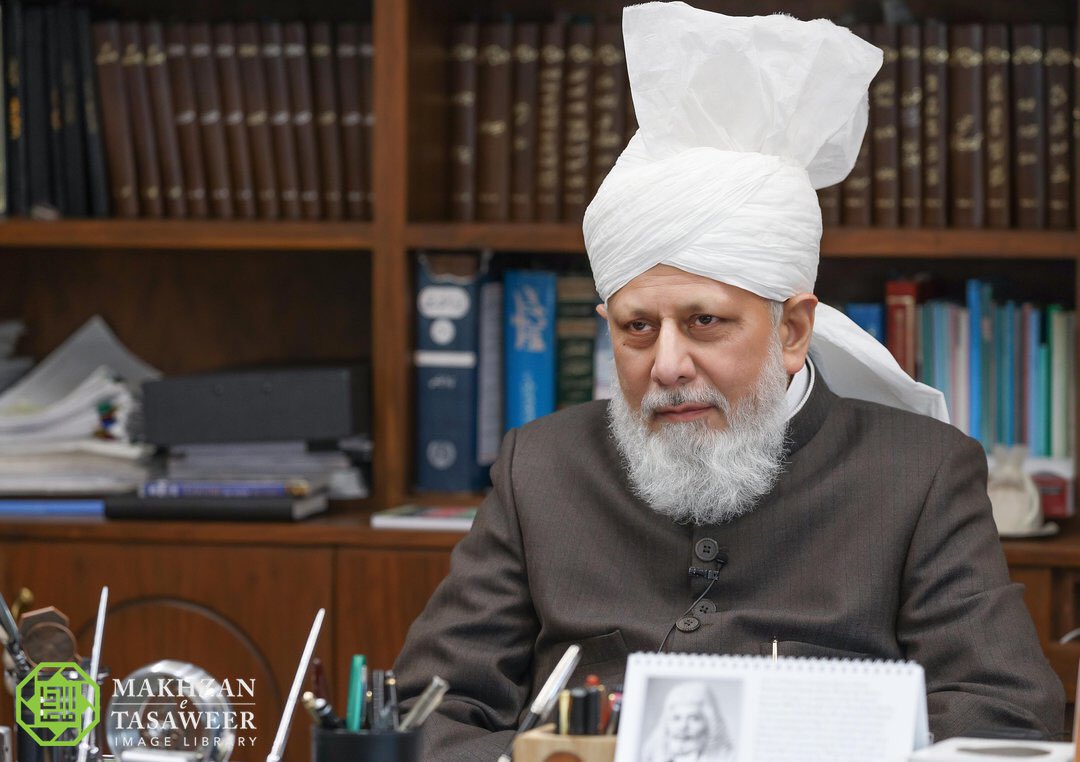
Dear Sir,
Like many University graduates I had dreams and expectations to land an amazing job after graduation, as this is what I was led to believe. I ended up with a 1st class degree from a good university. However, when I actually started looking for a job, my degree didn’t help me much and the realities of life hit me. Like many people I ended up in a job not related to the field I studied. I was constantly depressed and unhappy. By the grace of Allah, I had a personal audience with Hazrat Khalifatul-Masih Vaba. I told him about how I felt and all my problems. Beloved Huzooraba listened to my struggles and advised me to “study ICT or Computing”. At first, I was reluctant to go back to education again, but I finally heeded his advice and did a conversion course in computer science. By the grace of Allah, that has been the best decision of my life, I managed to secure an amazing job even before I finished my degree and then have gone on to work with some amazing companies. By listening to Huzooraba, I discovered that software engineering is my passion and now I am in a job and field, which I love. I find it amazing that such advice which came from a meeting of only a few minutes was so spiritually charged that it really did change my life.
Yasir Khan
Upper Mitcham
Letters to the Editor
Financial Services

Dear Sir,
I have been following the whole debate around the stock market: taking money back “from Wall street to Main street”. Recently, we saw small investors invest in stocks which sent certain stocks shooting through the roof, however, as they quickly fell many people lost out. Unfortunately, it became quite evident that it wasn’t as simple as people hoped it would be. I am certain some of us, who have been following this saga, will ask were these actions just? According to the House Committee on Financial Services, the answer is no. This whole episode reminded me of the chapter of the Holy Qur’an which pertains to being just in all matters. Perhaps it’s now time to stop running our entire financial edifice on cash that does not exist.
Sharjeel Sajid
Balham
Letters to the Editor
The Spirit of Sacrifice
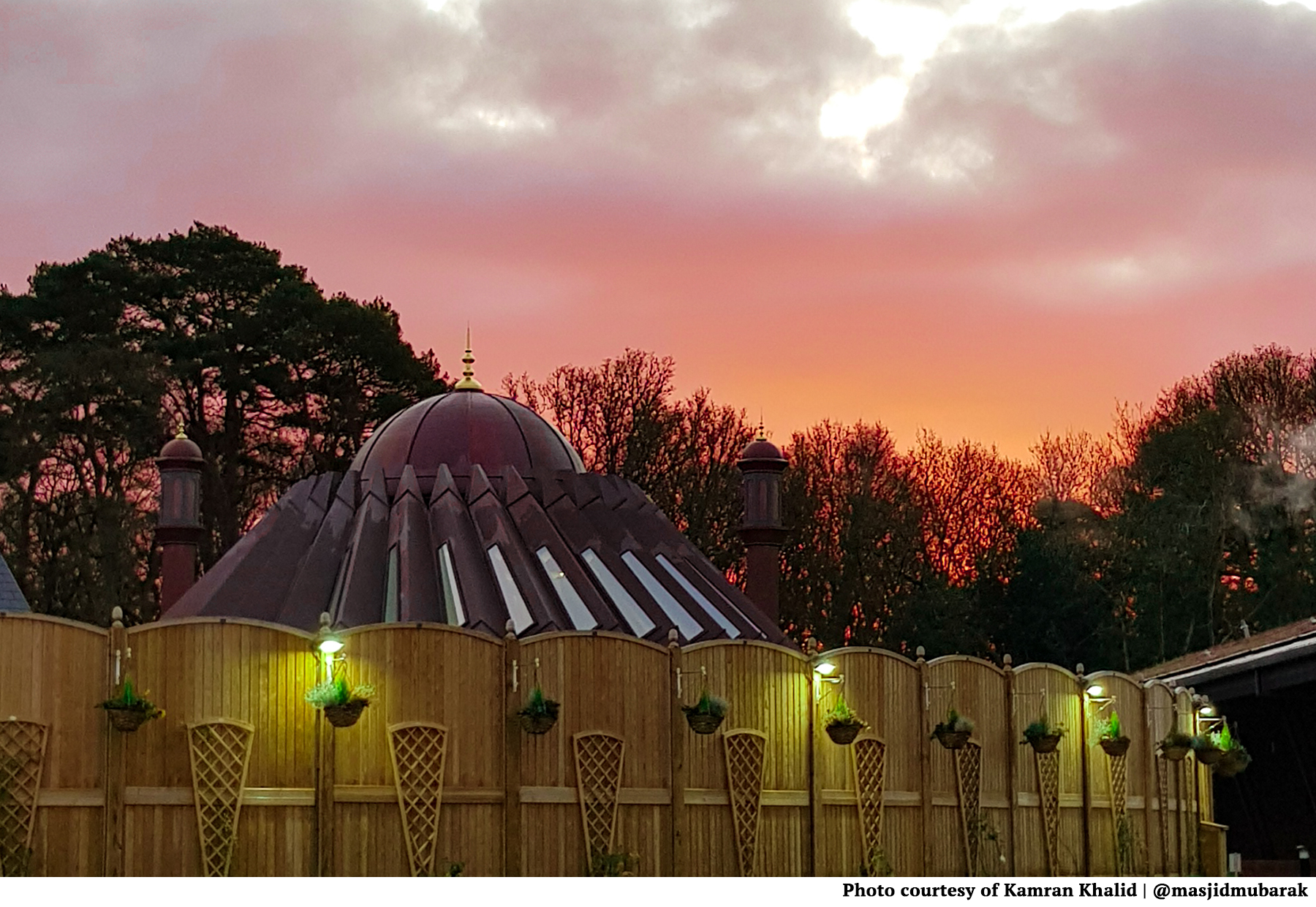
Dear Sir,
As you are aware, MKA UK has been covering the security shifts for Islamabad (whilst adhering to social distancing guidelines). Before the pandemic, these would be covered by Khuddam from across the country as each region took turns to bring a dozen Khuddam who would perform their voluntary duty for an entire day. As lockdown began, this responsibility fell to those Qiadats around Farnham and Muqami region as a whole. Khuddam have been much lifted by the manner in which Hazrat Khalifatul-Masih Vaba has shown his love for those performing these duties (see article in January 2021 edition). Recently, I learnt of a khadim in my Qiadat who walked nearly 1 hour to Islamabad so that he could cover his voluntary post. Though we have not really been offering prayers at the Mosque for over a year now, I believe the spirit of the second aspect of Islam—rights owed to humanity—is ever alive and growing.
Sabahat Cheema
Qaid Farnham
-
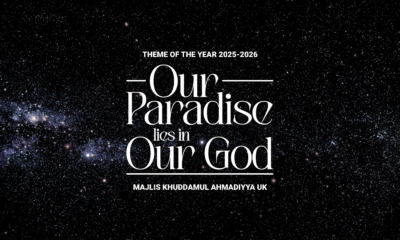
 Ijtema2 months ago
Ijtema2 months agoOur Paradise lies in our God. Understanding the Theme of the Year
-

 News1 month ago
News1 month agoA Fresh Start: Serving God and Community in the New Year
-
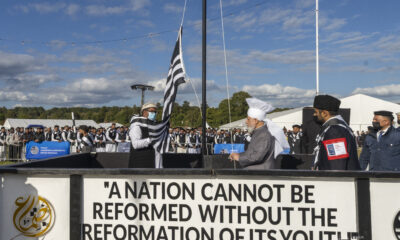
 Ijtema3 months ago
Ijtema3 months agoThe Path to a Spiritual & Moral Transformation
-

 News2 months ago
News2 months agoCalling to the Way of Allah with wisdom – MKA West Midlands Tabligh Waqf-e-Arzi
-
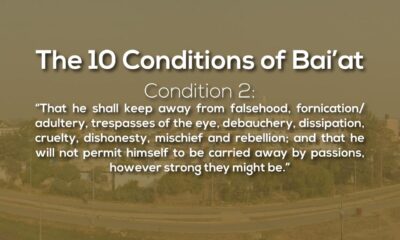
 Editorial4 weeks ago
Editorial4 weeks agoCondition 2 of Bai‘at
-
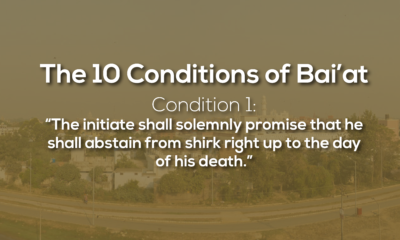
 Editorial1 month ago
Editorial1 month agoConditions of Bai’at: Condition 1, abstaining from Shirk
-
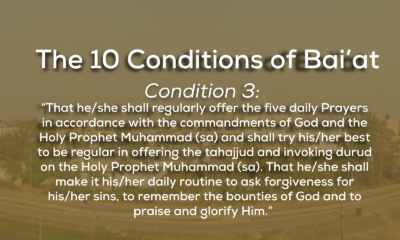
 Editorial3 weeks ago
Editorial3 weeks agoCondition 3 of Bai‘at: Offering Prayers & Durood
-
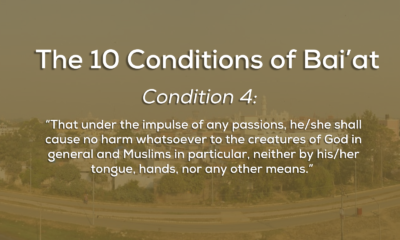
 Editorial16 hours ago
Editorial16 hours agoConditions of Bai’at: Condition 4, cause no harm
